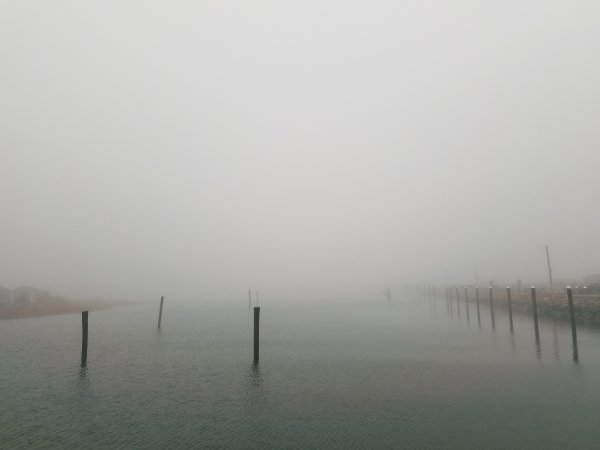Looking out over the rubble of our political system today, I’m reminded of a post from 2015, in which I argued that the political struggle of Right versus Left is not a contest of different policy preferences, but something far more basic, and more universal, even than human existence itself: the struggle against entropy, against things “running down”.
Take, for just one example, the current battle of nationalism vs. globalism — or, as David Goodheart framed it, of “Somewheres” vs. “Anywheres”.
A classic example of entropy is to put a drop of ink in a glass of water. For a little while, the ink sits there as a tiny dark spot in clear water — but come back the next day, and thermal diffusion has scattered the ink, and all that remains is a glass of slightly blue water. The original configuration is highly specific — the ink is here, and not there — while the end state is simply a random distribution. The important thing about this is that out of the uncountable trillions of possible states of ink-in-water, nearly all of them are indistinguishable random states. The initial, highly ordered condition of a bright blue drop in a glass of clear water is infinitesimally rare — and the inexorable tendency of every system in the Universe is to randomize, to decay, to “run down”. And so it is with everything interesting, valuable, or productive in the world.
The initial condition of the world in the modern era was like the drop of ink in the glass of water: distinct cultures, like drops of differently colored ink, in homelands scattered around the globe. In a bigger, slower, cooler world, such distinctness could persist, and until recent historical times it made the world a blooming garden of genuine diversity. It should be easy to see that ease of travel and instantaneous communication would naturally have a diffusing, entropic effect — but the current fetish for open borders and mass migration is entropy on methamphetamine. And who supports it? The Left, and militantly so. Who stands against it? The Right.
So I’m reposting, just below, a four-year-old item about all of this, entitled What Is The Right?. (It refers in turn to some earlier posts, but it stands up well enough without editing, I think.)
The point for today, as we survey the battlefield on the morrow of this astonishing presidential impeachment, is that there can be no compromise with decay.
* * * * * * *
In our last Open Thread, our resident liberal gadfly Peter, a.k.a. ‘The One Eyed Man’, left a comment citing the late Richard Hofstadter to the effect that the political Right (in particular, the “dissident” Right whose views are often summarized in these pages), exhibits a “paranoid style”.
Several of us responded in the ensuing discussion. But each time I read the original comment, and the Hofstadter passages it quotes, the more perfectly paradigmatic it all seems of the unreflective perceptual biases of the Left.
In particular, where the analysis goes off the rails is in the way that it mischaracterizes the traditionalist Right’s view of the Left in this conflict of ideologies:
“The enemy [i.e., as cited here, the influential man of the Left] is clearly delineated: he is a perfect model of malice, a kind of amoral superman — sinister, ubiquitous, powerful, cruel, sensual, luxury-loving. Unlike the rest of us, the enemy is not caught in the toils of the vast mechanism of history, himself a victim of his past, his desires, his limitations. He wills, indeed, he manufactures, the mechanism of history, or tries to deflect the normal course of history in an evil way.”
But this is not how those of us on the dissident Right see this at all. Correctly understood, the core features of modern Leftism are not an exogenous historical anomaly, brought about by the individual will of aberrant masterminds to “deflect the normal course of history”, but are instead an entirely predictable social and historical force, perfectly consistent with a coherent understanding of human nature and the pitfalls of democracy. A movement toward the Left, and ultimately toward despotism and collapse, is the “normal course” of history, in exactly the same way that the “normal course” of a river is to run downhill.
Indeed, the phenomenon is even more general than either history or human nature: in conformance with the Second Law of Thermodynamics, it is in fact a manifestation of entropy — of the wearing down of complex and specific structures, the destruction of the particular in favor of the general, and the relentless erosion of all of the gradients, distinctions, and disequilibria that are the only possible source of usable energy, and therefore useful work, in any system.
The ‘One Eyed Man’ quotes, as an example of right-wing “paranoia”, our commenter Whitewall’s likening of the Left to “termites, roaches, bed bugs, ticks, mold, radon’. But these comparisons are more than an expression of simple revulsion: all of these things are agents of decay, of disorder (in radon’s case, the actual decay of atoms themselves). In this way, Whitewall’s remark reveals an implicit understanding of the Left as, above all, an entropic historical force.
So: if the Right seems Manichaean, it is because the Right correctly perceives its role not as one side in a contest between two equally contingent, and arbitrarily chosen, approaches to government, but rather as a bulwark against entropy itself: against disorder, decay, and the “heat death” of the civilization it seeks to defend. Hofstadter’s emphasis (like Peter’s) is on political compromise, and to this he owes his reputation as a level-headed centrist. But the historically literate Right understands that any compromise with entropy is ultimately futile, because all such compromises are necessarily a unidirectional movement toward greater disorder. (We understand also, to our sorrow, that disorder always wins in the end — but to preserve what we can, for as long as we can, clearly requires nothing less than our best efforts.)
None of this is to say, of course, that there aren’t clever, charismatic, and extremely dangerous people on the Left, with resentful or self-serving motives and destructive intentions. But they are specific, particular, contingent phenomena — opportunistic infections. The focus of the reactionary Right, on the other hand, is on a universal, natural process, by which order yields to disorder; the political Left is merely its aspect in human societies.

